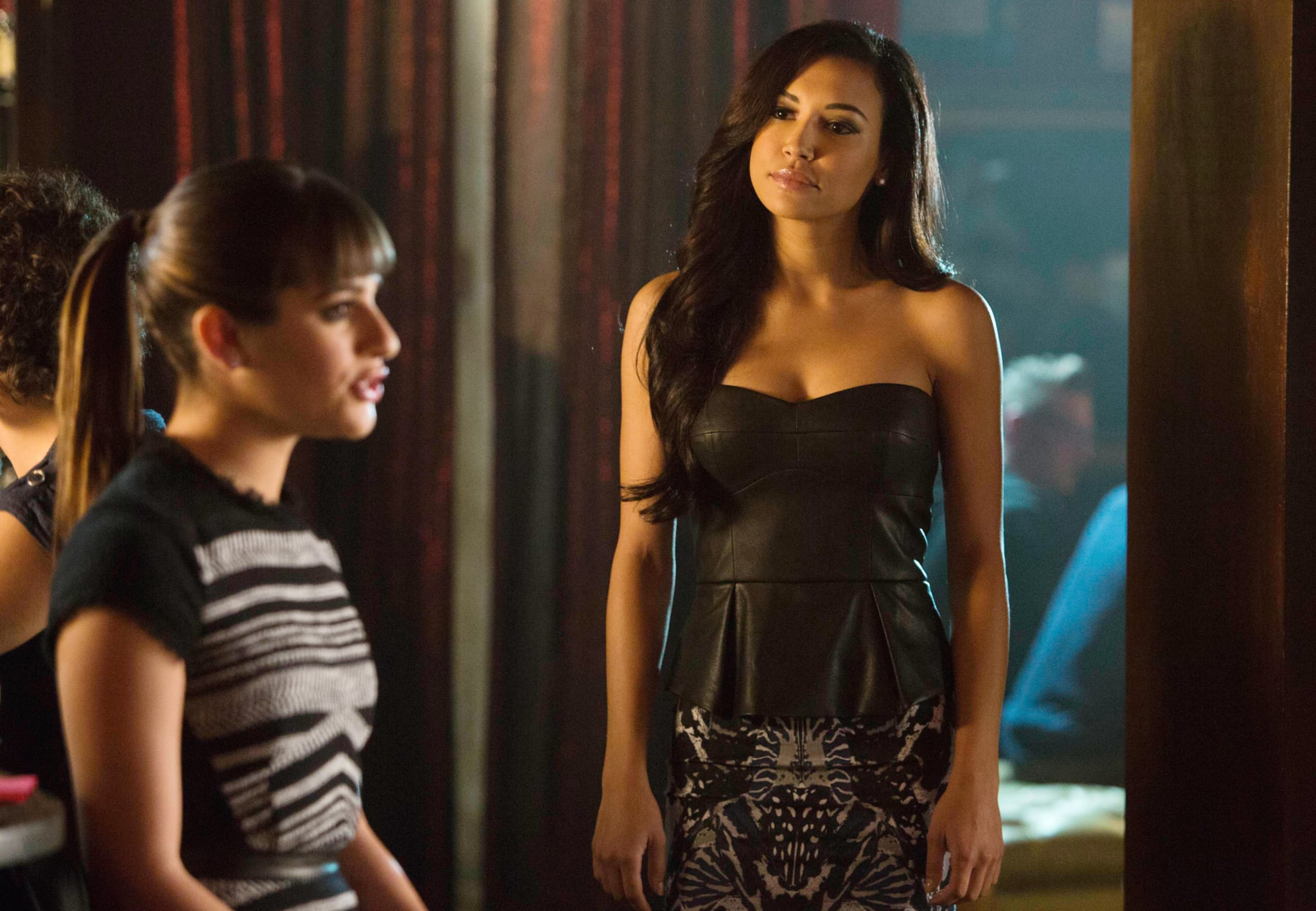
For years, Glee's legacy to me was that it was a cursed show with a cursed cast — the storylines and jokes that didn't age well coupled with more than one star dying before the age of 40 made it too dark to revisit. But when Naya Rivera tragically died in July [1] after going missing while boating with her 4-year-old son, a tight knot inexplicably started house hunting in my gut, and I felt compelled to take a closer look at the show and its mean girl with a heart of gold.
After all, it was Santana, the person who seamlessly moved between delivering the show's most memorable performances [2] to tearing down her enemies in a single breath to displaying a fierce loyalty towards those she dained to hold close, who I could never look away from and saw parts of myself in (minus, as close friends of mine would be quick to point out, any sort of singing ability).
Santana has become a vessel for which I can sort through my own feelings, accept and embrace both the positive and negative, and ultimately see myself in a clearer light. What an incredible legacy.
I didn't start coming out as queer [3] until my mid-20s, which was well after the show ended, and it's a journey I'm still on. But it's coming out to myself and my path towards self-acceptance that Santana has helped me with ever since that knot signed a lease in my stomach. Glee was a rare network show in the 2010s because it had multiple queer characters, some who, perhaps on paper, I should identify with more closely than I do with Santana. For example, Brittany and I are both white bisexual women, but our similarities end there. She never questions or wrestles with her sexuality. She floats through life and accepts who she is at face value. While admirable, her lack of self-reckoning makes her nearly unrecognisable to my own experience.
I grew up in an aggressively heteronormative [4] part of New Jersey. One time in middle school, I drew a crooked line on a piece of paper and said to a classmate, "It's not straight and maybe neither am I." As the words flew out of my mouth, a look of horror crossed her face. I backtracked, made a mental note that my comment was "bad because gay," and prayed that it wouldn't fire up the ol' rumour mill. Throughout high school, I rotated through boys that I had crushes on (AKA occasionally talked to and lightly Facebook stalked). Some were born out of genuine feelings while others were created out of necessity, because logic, more often than hormones, told me I should like a guy at all times. Simultaneously, I developed a quick wit that oftentimes manifested itself in making fun of other people's flaws. I became sarcastic, guarded, and acerbic, all in the name of being funny. It didn't matter if this came with holding a low level amount of anger inside me. Coupled with the definitely only boys I ever had feelings for, I felt I could control my narrative.
There's a scene in season two of Glee that, upon recent rewatch, blasted me wide open so badly that the knot in my gut can't possibly get its security deposit back (flash poll: should I stop with this extended yet lazy metaphor?). When Santana tells Brittany she loves her, she says, "I am a bitch because I'm angry. I am angry because I have all these feelings for you that I am afraid of dealing with." She goes on to say she's not comfortable coming out publicly [5] because she's afraid of what people will say behind her back. Watching Santana give context to her anger and defencive attitude gave me a greater understanding of who I am. I have been described by people close to me as "an emotional brick wall" and "a tough crowd." These descriptors come from dear friends and they're absolutely true. I nitpick and criticize from afar and hold a PhD in deflection (PhDeflection, nailed it). Writing and performing comedy is my greatest passion, but my early comedic voice was nothing more than sarcasm and an overblown fake self-confidence that barely cloaked my own insecurities and anger. Remember that Condescending Wonka meme from 2012? I dressed up as him for a themed party in college. It was an absolute hit because that meme aligned so closely with my whole deal.
So what do I know all these years later? While I now have a better frame of reference for previously unexplained moments of exasperation due to my repression, coming out didn't change my personality . . . and that's actually OK. And the same is true for Santana. There are sharp edges and a snark but also a deep loyalty that informs the very fabric of both our beings. To ditch these characteristics would be to hide who we really are — a thing we both stopped doing by admitting we're queer. Instead, coming out gives us both a backdrop to develop a deeper understanding of ourselves, past and present.
Over the past few weeks, Santana has become a vessel for which I can sort through my own feelings (a thing that I, like Santana, hate doing), accept and embrace both the positive and negative, and ultimately see myself in a clearer light. What an incredible legacy.
When I watched Glee as a teenager (so deep in the closet I might as well have been in Narnia), I never would have guessed that Santana Lopez would be the character to have a lasting and positive impact on me. Frankly I never thought I would return to the show. For years, I would shamefully tell people, "Yeah I used to watch Glee. And unfortunately owned a lot of the music, but who cares. That show was totally lame. I have better taste now." What a very Santana reaction to have.
